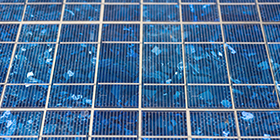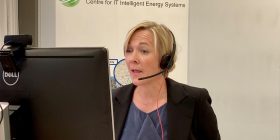New Year greeting from Henrik Madsen, Professor at DTU Compute, Project Manager at CITIES and Center Manager for the Cities Innovation Center
The New Year announces the start of a decade of green transition, and the 2020s will be crucial to the future climate on Earth. In Denmark, we have got the Climate Act (Klimaloven) and a goal of 70 per cent reduction in 2030, and the European Commission has announced the Green Deal. So now there is serious action behind the words so that concrete solutions are put into use.
Fortunately, Denmark’s largest smart energy and smart city research project, CITIES – supported by the Innovation Fund Denmark, shows that there are already many tools on the shelves that give hope that the green transition will succeed. And that it doesn’t have to be that hard.
CITIES is a research project. Here, one year before the project ends, we are pleased that we have already published 110 scientific papers. It is far more than the originally promised 30-40 articles. It is well worth noting research results published in peer-review magazines. This shows, I believe, that there has been a need for research in the field of smart energy systems because we do not get results in scientific journals if the research tells something that is well known and tested. CITIES has been and is the leader with the new knowledge.
When we talk about crucial new CITIES knowledge that is important for the conversion from fossil fuels to renewable energy, ‘flexibility’ is at the top.
The energy production of the future will fluctuate as the wind blows and the sun shines. Consumers need to adapt to production, as opposed to today just turning coal and gas up and down in line with consumer needs. Consumer flexibility in the future must ensure a balance between production and consumption.
Before CITIES got started, all previous projects showed that there was no or only very low flexibility. But they had looked isolated into, for example, the grid. That was not the right way to study the problem. We can see that there is a lot of flexibility when we focus on the sectoral connection and use IT tools to control the interaction between electricity, heat, gas, etc. It shows many of our demo projects.
At CITIES, we have often connected digitization solutions to the technological solutions that partners such as Grundfos and Danfoss already have, to get the flexibility.
For example, we have seen that today we can save 15-20 per cent in CO2 emissions in some of the demo projects through IT management, so we use electricity and heat up when there is plenty of wind turbine power in the electricity grid and on the other hand save electricity when it comes from fossil fuels.
It is just one of 30-40 different CITIES solutions. In addition, we have developed low-temperature technologies in district heating, technologies for operating optimization of the temperature in district heating plants, technologies for operating optimization of wastewater treatment plants, heating of holiday cottages and for controlling the grid.
For example, a report prepared by Damvad for Danish District Heating shows that Denmark will be able to save DKK 800 million annually by optimizing and lowering the flow temperature in district heating systems using IT and data-intelligent solutions developed through CITIES.
We promised savings and CO2 reductions. Today we have tools and knowledge that the world did not have as we embarked on how to get flexibility and accelerate the green transition. This is often done by building on existing solutions from Danish companies, and therefore CITIES solutions lead to an acceleration of the green transition through green growth; including more jobs, increased revenue and exports.
This is one of the things we will be presenting at the closing conference for CITIES on November 9 and 10, 2020. Please put the date in your calendar right away!
When CITIES started back in 2014, many talked about ‘smart city’. But there were no tools available. Today we have the tools and the municipalities are coming along: CITIES shows that there is hope for the green transition.
However, our research also shows that we need changing framework conditions and taxes. The existing framework conditions are a barrier to the green transition – a barrier to the solutions that ensure the green transition and the possibility of reaching, for example, the Danish 70-2030 target.
In CITIES we have the solutions, but it is the politicians who must now create the basis for Denmark – through e.g. the new digitization centre for smart energy systems ‘Center Denmark’ – to show the way to a quick and efficient green transition.
Denmark is lagging behind because the politicians will not address the framework conditions. A report released by the European Commission just before Christmas confirms that.
In Denmark, there is broad political agreement on the ambitious target of a 70 per cent reduction in greenhouse gases by 2030. This year the government will spend more than DKK 1.5 billion on green research. In order to really benefit it requires the right framework conditions.
The energy agreement from 2018 and a number of committees have highlighted the need for new framework conditions, but nothing has happened. CITIES has in a collaboration between industry, universities, SMEs and people focused on innovation developed and proposed a structure for new framework conditions. We hope that we will get some framework conditions as soon as possible that, unlike the current ones, can promote the green transition – accompanied by green growth.
In 2014, CITIES published a brochure entitled: Could we be 100% fossil-free tomorrow?
The answer was – and is – yes! Maybe not tomorrow. In CITIES we don’t think it is that hard. We just need to be smarter than today and use intelligent solutions – and stop clinging to outdated framework conditions.
Happy New Year.




